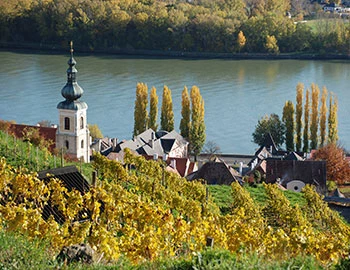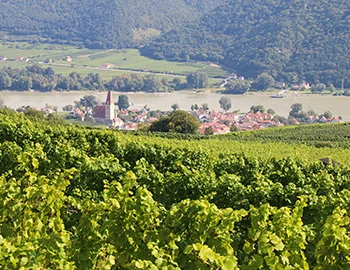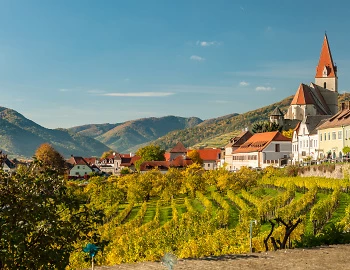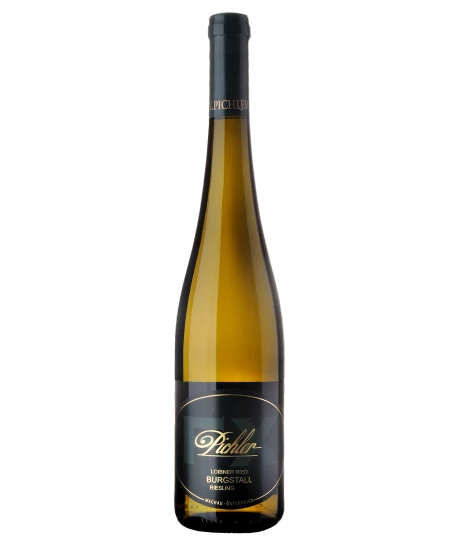Riesling Loibner Burgstall 2022
DAC Wachau, F.X. Pichler, 750 ml

Description
Tasting notes according to The Wine Advocate / Robert Parker / Stephan Reinhardt: "From sandy gneiss soil on a windy plateau, the 2021 Loibner Riesling Ried Burgstall fermented in stainless steel and aged in large oak for three months before being released in May. It opens with a clear, fine and elegant bouquet of lime juice and rind intermingled with riper citrus fruit such as grapefruit but also lovely grass and herbal notes. On the palate, this is a round but dry and savory, saline and astringent dry Riesling with lush and charming fruit on the mid-palate but a still lean and grippy finish. This is a wine that should be cellared for some years before drinking, but it can also age for many years.".
Attributes
| Grape variety: | Riesling |
| Producer: | F.X. Pichler |
| Origin: | Austria / Niederösterreich / Wachau |
| Label: | Vegan |
| Ripening potential: | 1 to 20 years |
| Drinking temperature: | 10 to 12 °C |
| Food Pairing: | Mild Asian dishes, Baked egli fillets with tartare sauce, Fresh water fish with cream sauce, Vitello tonnato, Salad with vegetables, pulses, pasta |
| Vinification: | fermentation in steel tank, soft pressing |
| Harvest: | in several rounds (tries) |
| Maturation: | in large wooden barrel/foudre |
| Bottling: | filtration |
| Volume: | 12.5 % |
| Note: | Contains sulphites |
Wachau
Wachau: white crus of world renown
The Wachau is literally a spectacle for all the senses. The river landscape is extraordinarily beautiful, and its terraced vineyards were added to the inventory of UNESCO World Heritage Sites in 2000. The wines, too, are spectacularly good. Grüner Veltliner and Riesling are in friendly competition for being the most high-quality white wines in Austria. In their own way, each variety yields unique crus that combine power and finesse in playful lightness.

Niederösterreich
Lower Austria: crus near and far from the Danube
Austria's largest state is also its largest wine region. 46,000 hectares are planted with vines in Lower Austria. It is a heterogenic wine region, consisting of eight wine growing areas. While white varieties like Grüner Veltliner and Riesling dominate in the areas north and west of Vienna, red varieties set the tone in the south and in the southeast (Thermenregion and Carnuntum). The internationally famous white crus from Grüner Veltliner and Riesling develop in the picturesque Wachau and Kamptal.

Austria
Austria – Sumptuous culture, accessible to all
Austria is characterized by unbelievable topographical diversity. A flat steppe in the east, forests and hills in the Alpine regions, wetlands and Mediterranean landscapes in the south. This in addition to a rich tradition and even greater love. It’s no surprise that the Romans found joy on this patch of Earth and cultivated wine growing. Austrian wine is not abundant, but it is high quality.



